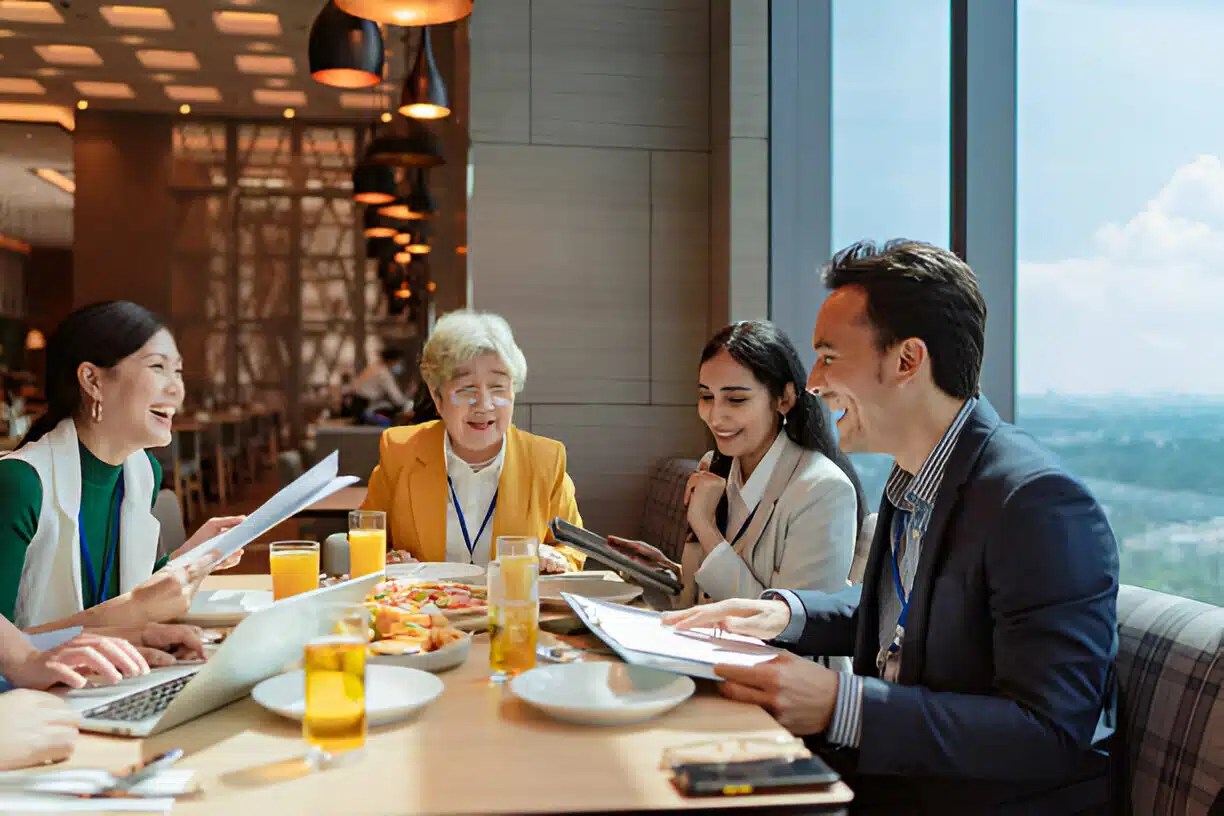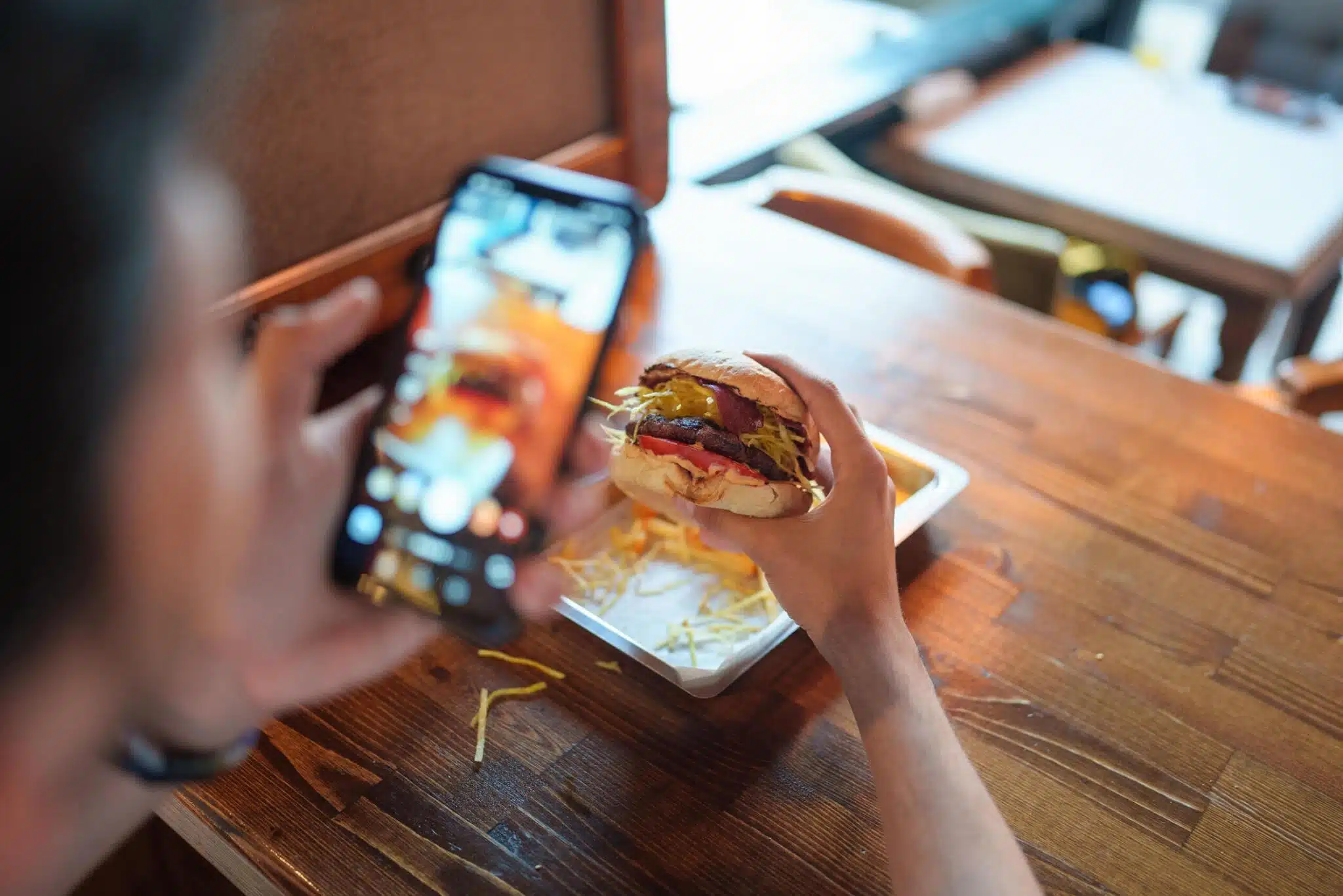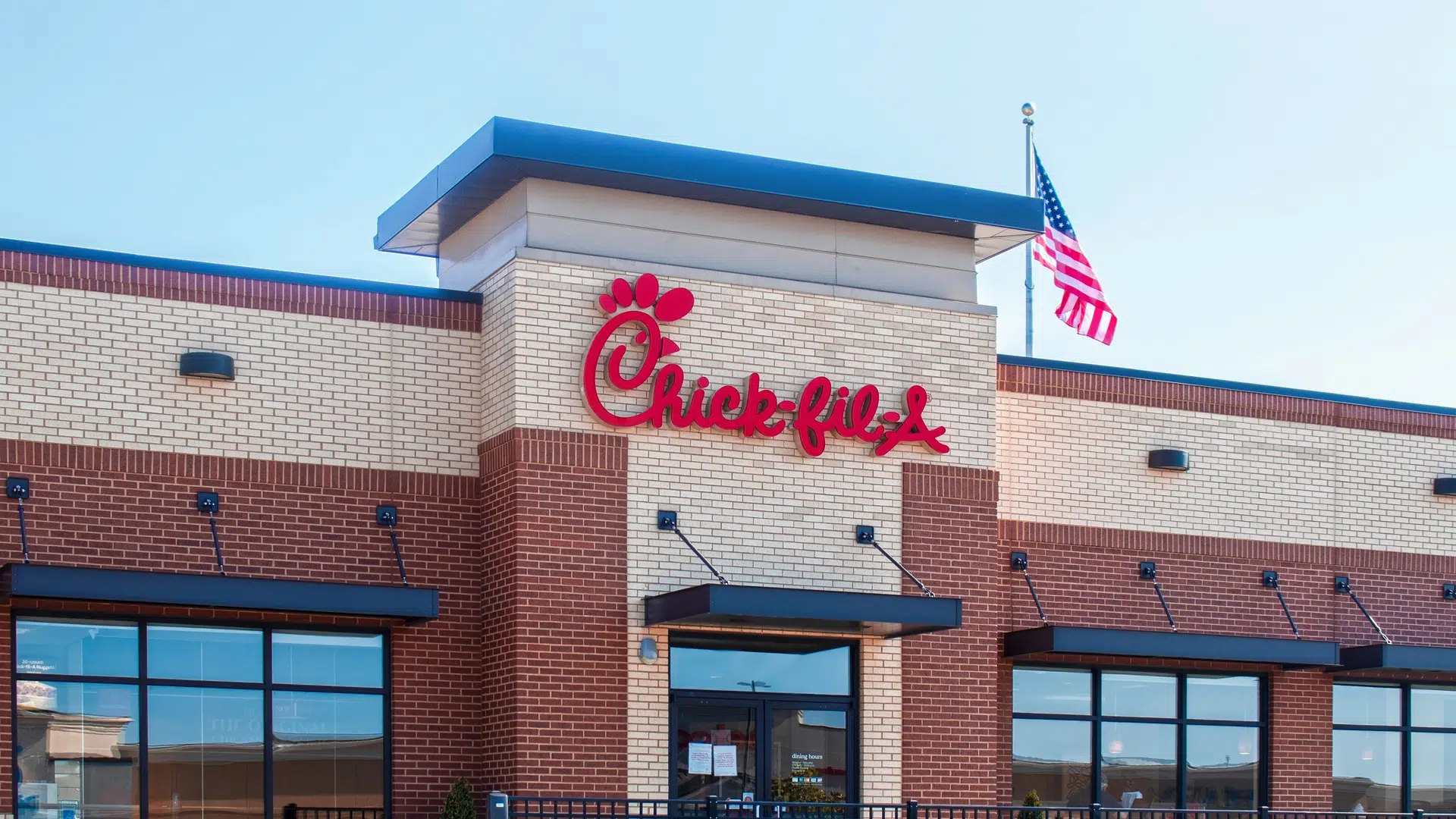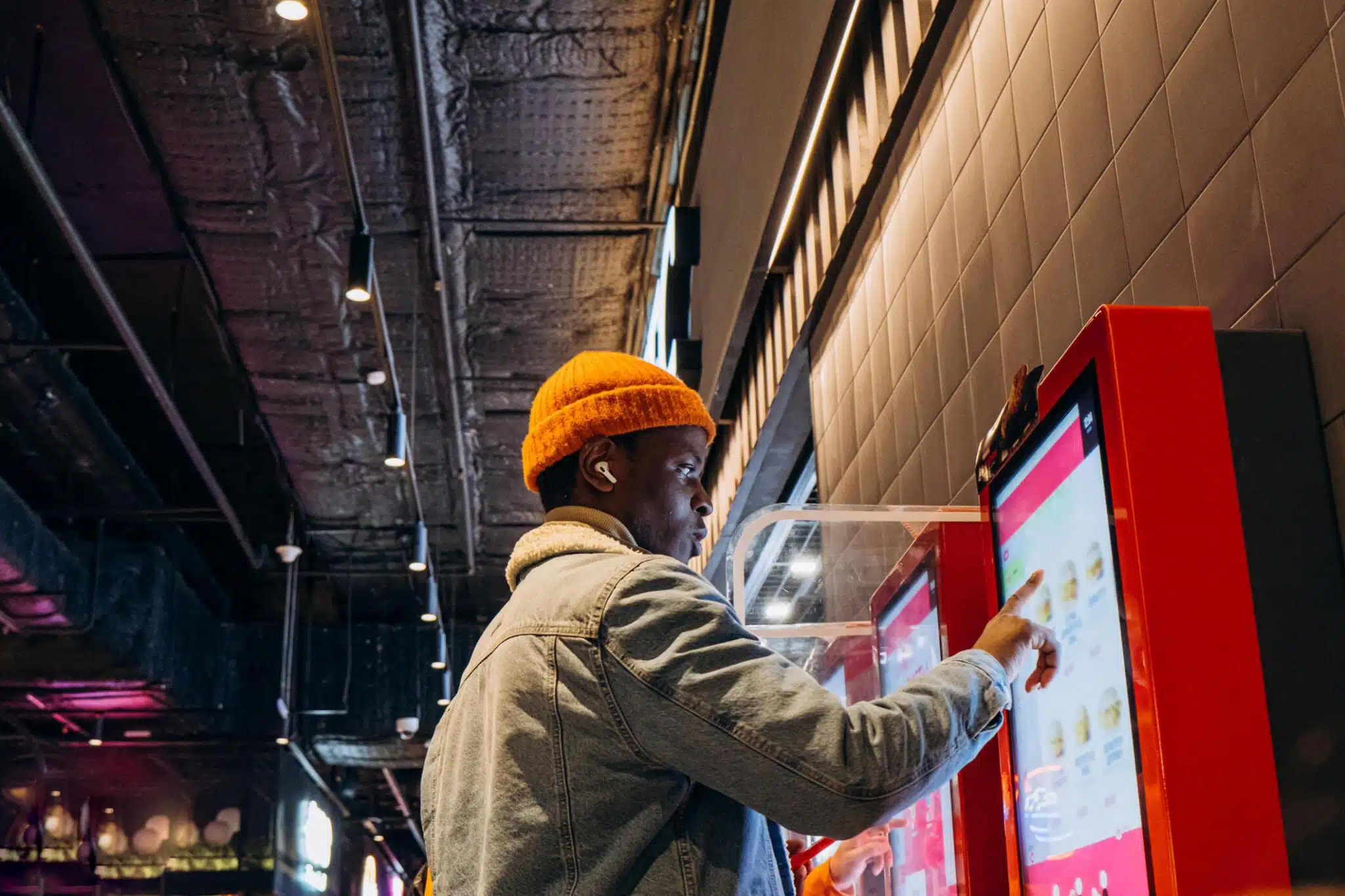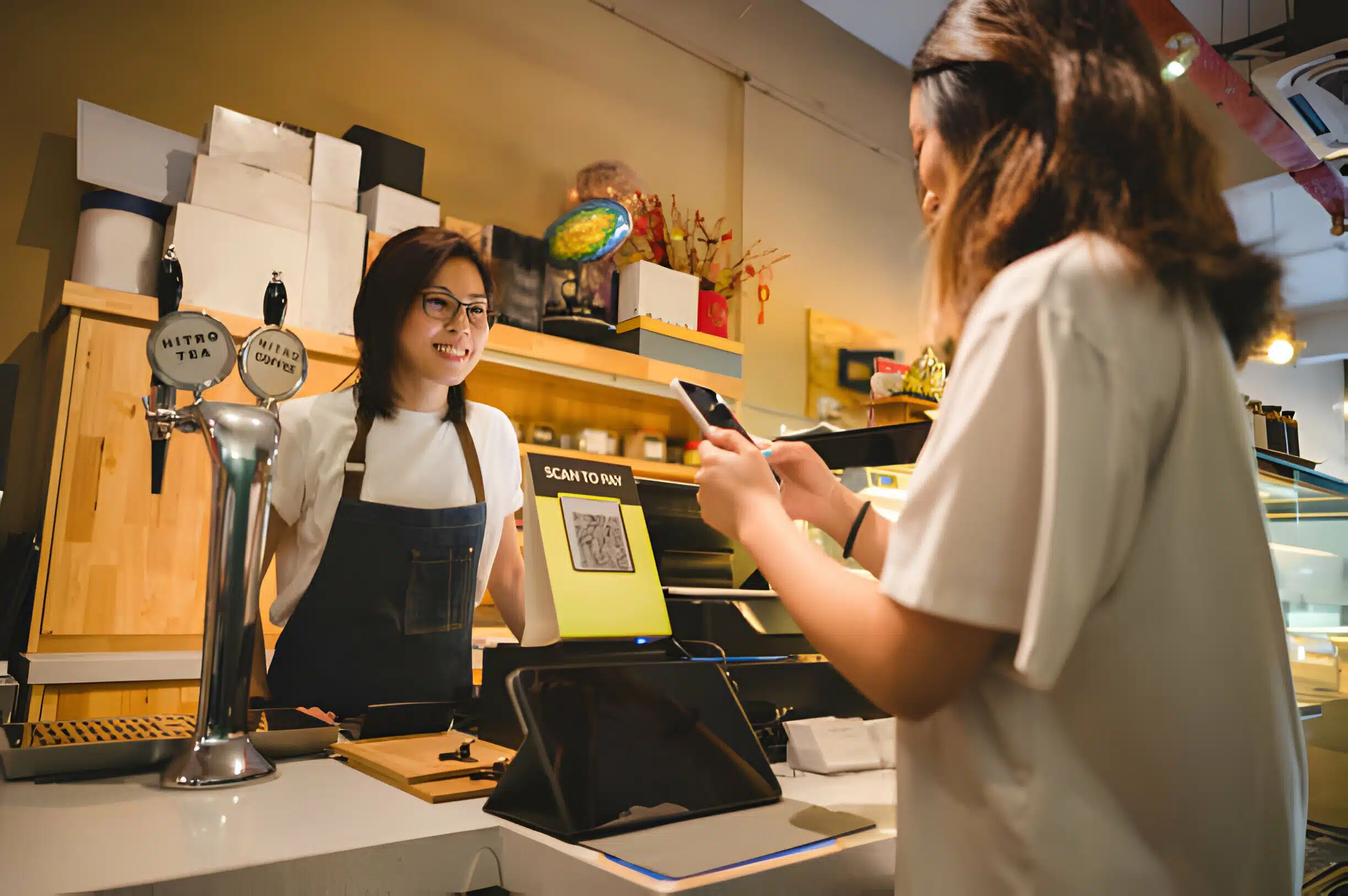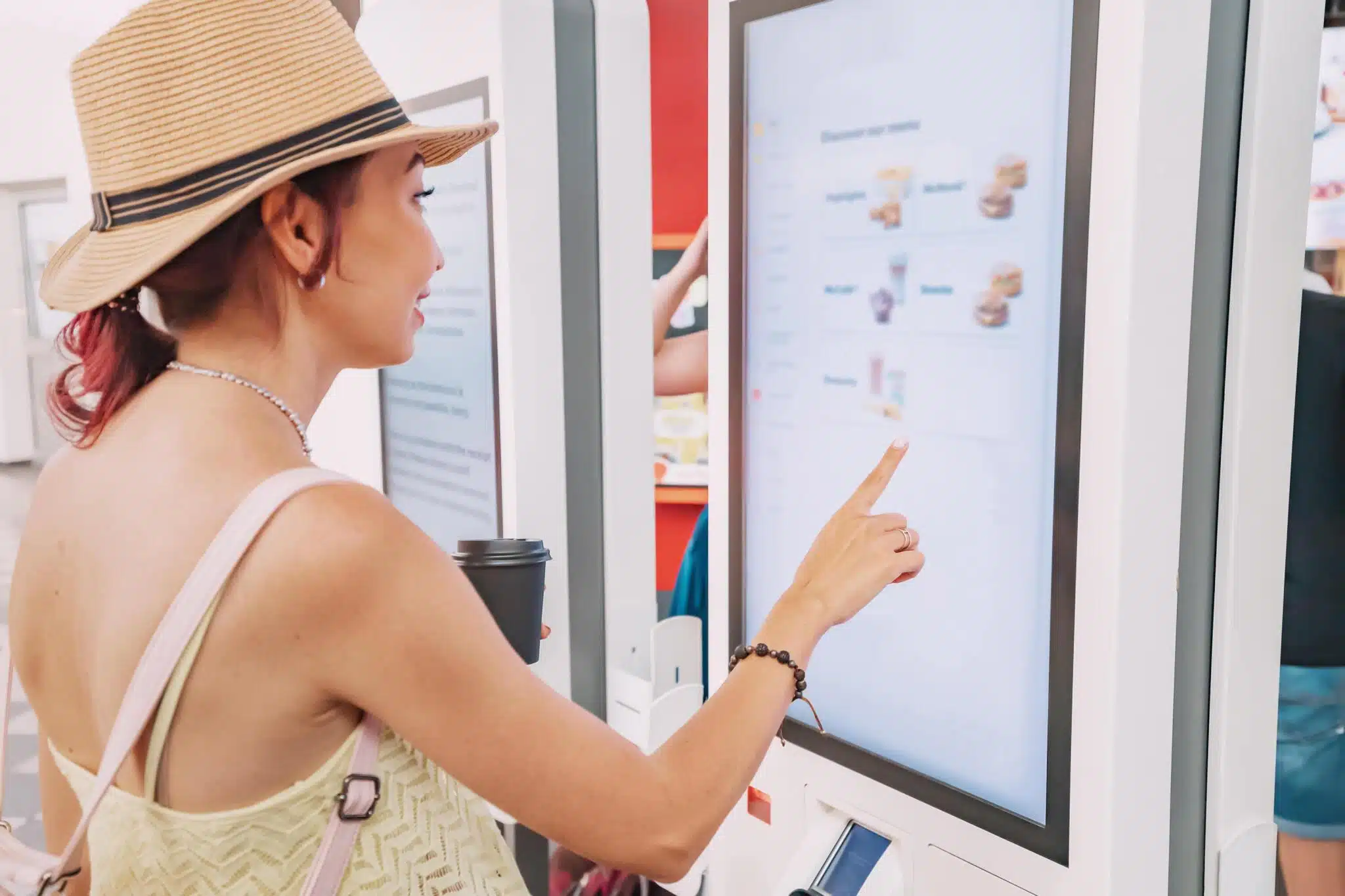
By Michael Butler, Miami Herald Reporter
Sunday, May 14, 2023
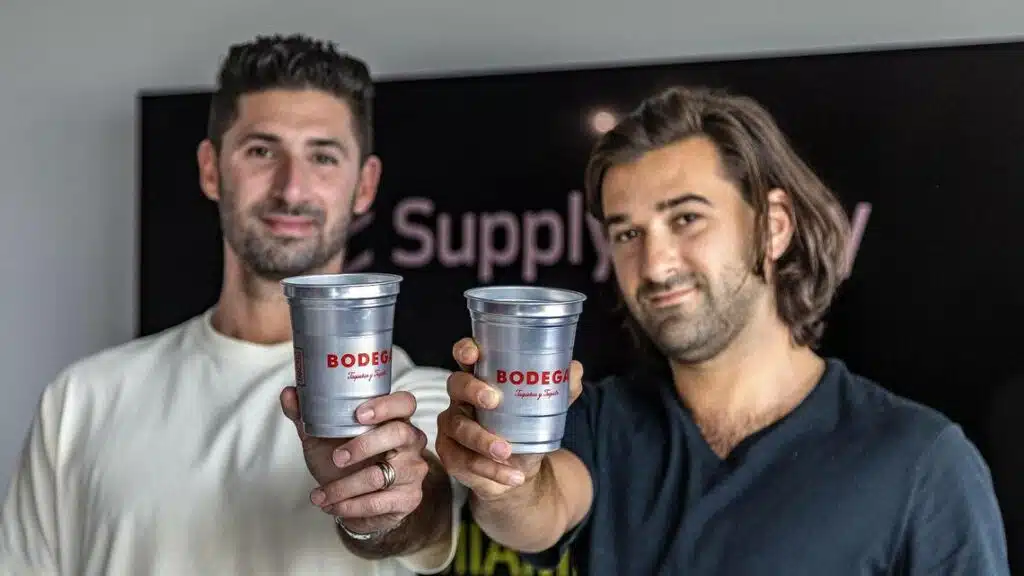
Co-founders Zachary Stein, CEO at left, and Bradley Saveth at right, President and COO, run SupplyCaddy in Miami. They show cups on May 12, 2023 they produced for Bodega Taqueria y Tequila restaurant. It’s one of the many clients of the company’s packaging and disposables products made for the food service industry.
Photo Credit: PEDRO PORTAL [email protected]
SupplyCaddy co-founders Zachary Stein and Bradley Saveth consider themselves problem solvers, as much as Miami food-packaging professionals. Their Wynwood office could easily double as an artist’s studio. As they sift through different samples of products for clients as large as national fried chicken chain Popeyes to smaller local Latin food purveyor Bodega, one thing is paramount: Making sure each client has customized packaging. To do that, Stein, the CEO, and Saveth, the president and COO. deploy a hands-on approach. In working with Bodega Taqueria y Tequila, the Miami Beach residents were tasked with making 15 different products that previously had been handled by seven different packaging suppliers. That meant using measuring tape to see what size tacos fit best in certain boxes and assessing what materials held the necessary temperatures to keep food fresh for Bodega’s customers.
“We spent the last two months at their Miami Beach location to create boxes for better interaction with consumers,” Stein said. “We were with the chef every week testing dimensions and materials for five locations to create better and custom products.” Now, having secured a multimillion-dollar capital infusion a couple months ago, the founders are poised to ramp up their 3-year-old company’s growth and they have the cash to do it. Although based in Miami, the company’s manufacturing happens in Turkey and Mexico. Business growth is accelerating with revenue this year expected to triple, as the company experiments with more eco-friendly packaging and disposables mainly for restaurant chains. SupplyCaddy got its challenging start with the emergence of the pandemic in March 2020 making personal protective equipment for a society shocked by the powerful coronavirus.
In the beginning, Stein and Saveth built a sourcing team before launching so they could make masks at a high volume. Before formally being known as SupplyCaddy, the team’s first opportunity was global shipping giant FedEx. Like many companies at the time, FedEx was having difficulty securing enough masks for their employees and ordered 500,000 of them from SupplyCaddy’s founders and wanted them in two weeks. After delivering the first order on time, FedEx asked the Miami startup for 2 million more masks. Over three months, SupplyCaddy made eight million masks for the company that was on the frontlines in the throes of the pandemic delivering goods to businesses and homes around the world. Two months later, In May, Stein and Saveth were introduced to Popeyes, a quick-service chicken restaurant chain in need of food packaging. Popeyes’ vendor had cut off their allocation of paper bags, thereby creating an opportunity for SupplyCaddy to work with the fried-chicken franchise.
With pandemic-induced supply chain disruptions, Stein and Saveth found a way to circumvent shipping issues and rising freight costs in China by sourcing packaging products from a partner in Turkey. “With more research, we learned that the fast-casual packaging industry is historically programmatic and single-sourced,” Stein said. “The industry didn’t anticipate what would happen if a pandemic came and other vendors were scrambling for ways to get their clients what they needed, which allowed SupplyCaddy to step in.” SupplyCaddy delivered two million paper bags per month through the end of 2020 for 2,900 Popeyes locations nationwide. The experience working with Popeyes served as an inflection point for Stein and Saveth, who decided it was time to end their other professional endeavors and go all-in on SupplyCaddy. The mission: supply as much of the food service industry as they could with bags, containers, cups to serve consumers.
No wonder because they saw the vast potential. According to the U.S. Census Bureau, 225 million consumers in the United States will handle disposable food packaging from a restaurant this year.
CAPITAL INJECTION
Bodega cofounder and CEO Jared Galbut has relished the chance to work with SupplyCaddy. He sees the firm as a vital part of how restaurants will serve customers beyond the pandemic. Since launching in 2014, Bodega has five eateries in Miami and plans to expand to 20 locations in the next two years in cities such as Nashville and Chicago. “I think it was important that they were in Miami for us, because they gave us on-site, personal experience,” Galbut said. “We were able to show them why we needed products in a certain way and they were very responsive. I think that’s the level of detail they go to. They really wanted us to be happy and accomplished that with us.”
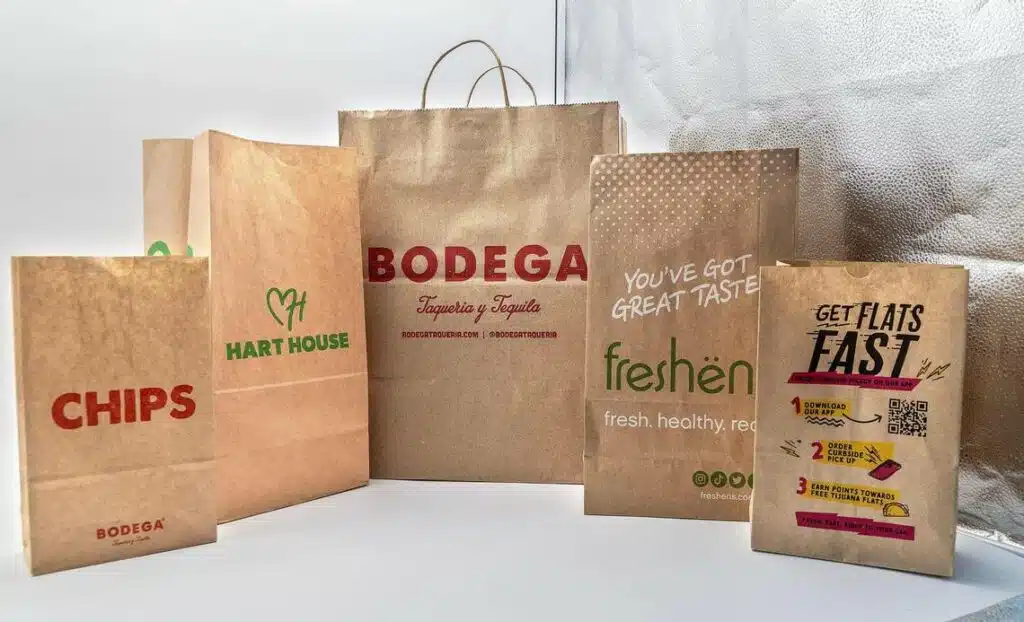
Miami-based SupplyCaddy makes an array of packaging and disposable products for the food service industry, including local South Florida businesses. Pedro Portal [email protected]
In March, SupplyCaddy raised $3.2 million in fresh capital from CEAS Investments, a Delray Beach-based firm. CEAS previously had invested in software companies but its chief investment officer Mike Wohl said he learned the young packaging company’s business was “exploding.” He saw how SupplyCaddy was serving clients in a unique, interactive way. “When they put money out to buy an order, there’s a two-month gap,” Wohl said. “They were not established enough to get a line of credit for financing, which they will be able to do in the future.”
What also convinced Wohl to invest in SupplyCaddy was the cofounders’ zeal. Before getting the multimillion-dollar investment, Stein and Saveth took out home equity lines of credit on their homes, loans and leveraged themselves to push the business as far as they could with personal funds. There was an extra gear the founders wanted to shift to in driving the company’s growth.
EUCALYPTUS AND BIOPLASTIC-BASED PACKAGING
Creating biodegradable packaging products is a top priority for SupplyCaddy. For example, Stein and Saveth have sourced oyster shells from Mexico that are used to make bio-plastic straws and cutlery that are biodegradable in 27 weeks. They also started using other materials such as eucalyptus fiber to make sustainable packaging. “By 2050 there could be more pounds of plastic than fish in the ocean,” Saveth said. “While elimination of plastic products won’t be 100% achievable in a year or two, by 2030 well be a paper and fiber-based company” SupplyCaddy’s client list has expanded to include more prominent national and regional restaurant chains and food distributors. Besides Popeyes, they count as customers: Burger King; Auntie Anne’s; Carvel; Cinnabon; Sysco; Carl’s Jr.; Hardee’s; Moe’s Southwest Grill; Tijuana Flats; Delta Air Lines; Dave’s Hot Chicken; Gold Creek Foods; Freshen’s; Hardees; Huey Magoo’s; Levain Bakery; Sticky’s Finger Joint; Sushi Maki; entertainment mogul Kevin Hart’s Hart House plant-based restaurant chain with four locations in California, among others.
Just three years into their food packaging venture, things have changed significantly for the tandem. For instance, Stein and Saveth jet every six weeks from their Miami home base to the one of the company’s production sites in Turkey. Their focus is still striving to give customers bespoke packaging options that they can’t get from any other company in the industry. “Whatever restaurants want to present, we want to make sure that packaging is what they want,” Stein said. “Presentation is one thing, but the raw materials going into it is another. Because of the ease of manufacturing, current manufacturers don’t think about that.”
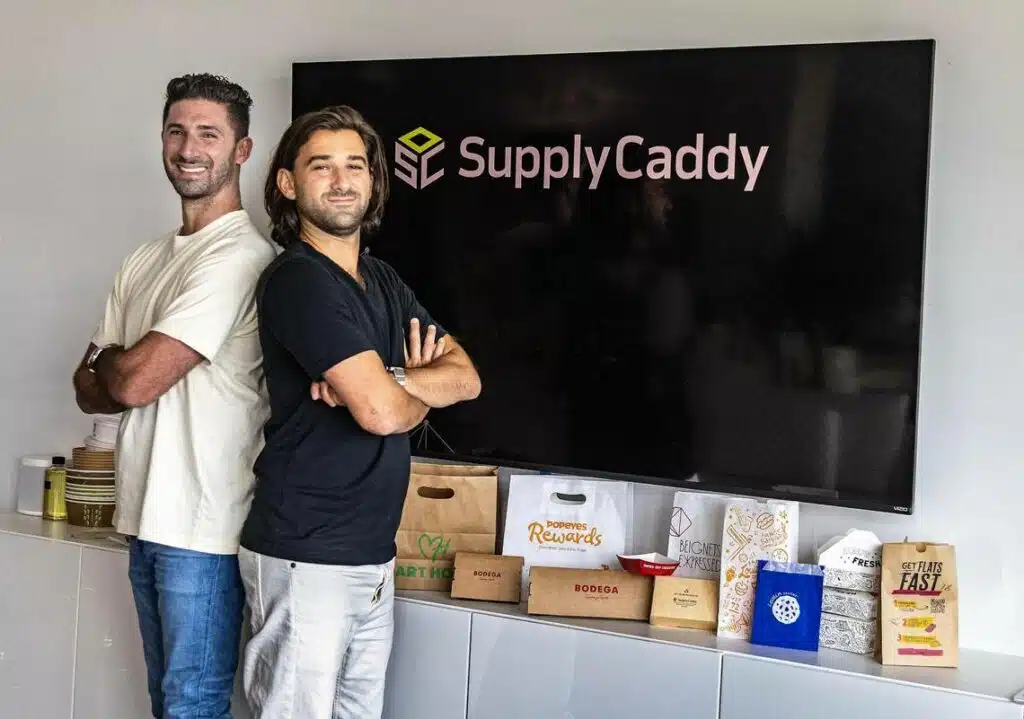
SupplyCaddy co-founders Zachary Stein and Bradley Saveth posed next to a display of different packaging and disposable products their company makes for the food service industry.
Photo Credit: Pedro Portal [email protected]


